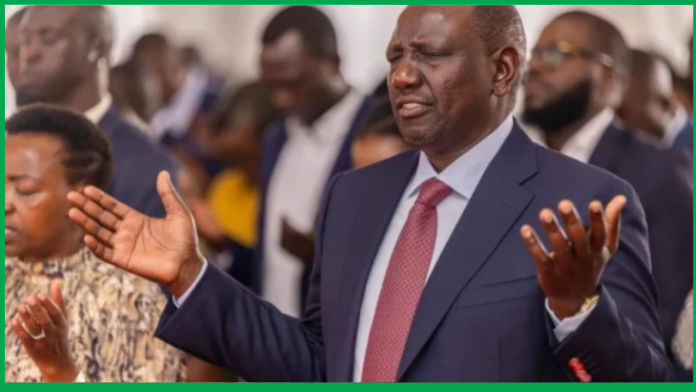President Ruto Issues Apology to Uganda, Tanzania Amid Strained Regional Ties
President William Ruto on Wednesday extended a heartfelt apology to Kenya’s neighbors—Uganda and Tanzania—over any unresolved disputes that may have strained diplomatic relations. Speaking during the National Prayer Breakfast at Safari Park, the Head of State struck a conciliatory tone, calling for reconciliation and reaffirming Kenya’s commitment to rebuilding and unity.
“To our neighbors in Tanzania, if we have wronged you in any way, we ask for your forgiveness. And to our friends in Uganda, if Kenyans have done anything untoward, we sincerely apologize,” President Ruto stated.
He also extended an olive branch to Kenyan youth, whose relationship with the government has remained tense following the 2024 anti-tax protests that erupted over rising taxation and perceived leadership failures.
“To our children, if there have been missteps, we are sorry. We want to rebuild a relationship that will strengthen and elevate our country,” he said.
President Ruto urged Kenyans to embrace a spirit of reconciliation and nation-building, noting that his administration is focused on healing divisions and steering the country toward prosperity.
“I ask all of us to work together—to move away from blame and focus on building bridges that can make our nation stronger,” he appealed. “I am confident in Kenya’s future. Despite our past challenges, I believe our best days are still ahead.”
His remarks come against the backdrop of unresolved issues linked to the deadly 2024 anti-tax demonstrations, during which several young protesters were reportedly killed by security forces. The Kenya Kwanza administration has also faced mounting criticism over alleged corruption and poor governance, even as citizens continue to bear the brunt of heavy taxation.
Regionally, tensions between Kenya and Tanzania escalated following the controversial deportation of Kenyan activists who had traveled to Tanzania to attend a court session involving opposition leader Tundu Lissu. The incident sparked fierce exchanges on social media, with users from both countries trading accusations over regional politics and civil liberties.
The diplomatic spat further intensified after lawmakers from both nations publicly clashed over the matter, raising concerns about the health of bilateral relations between the two East African states.



